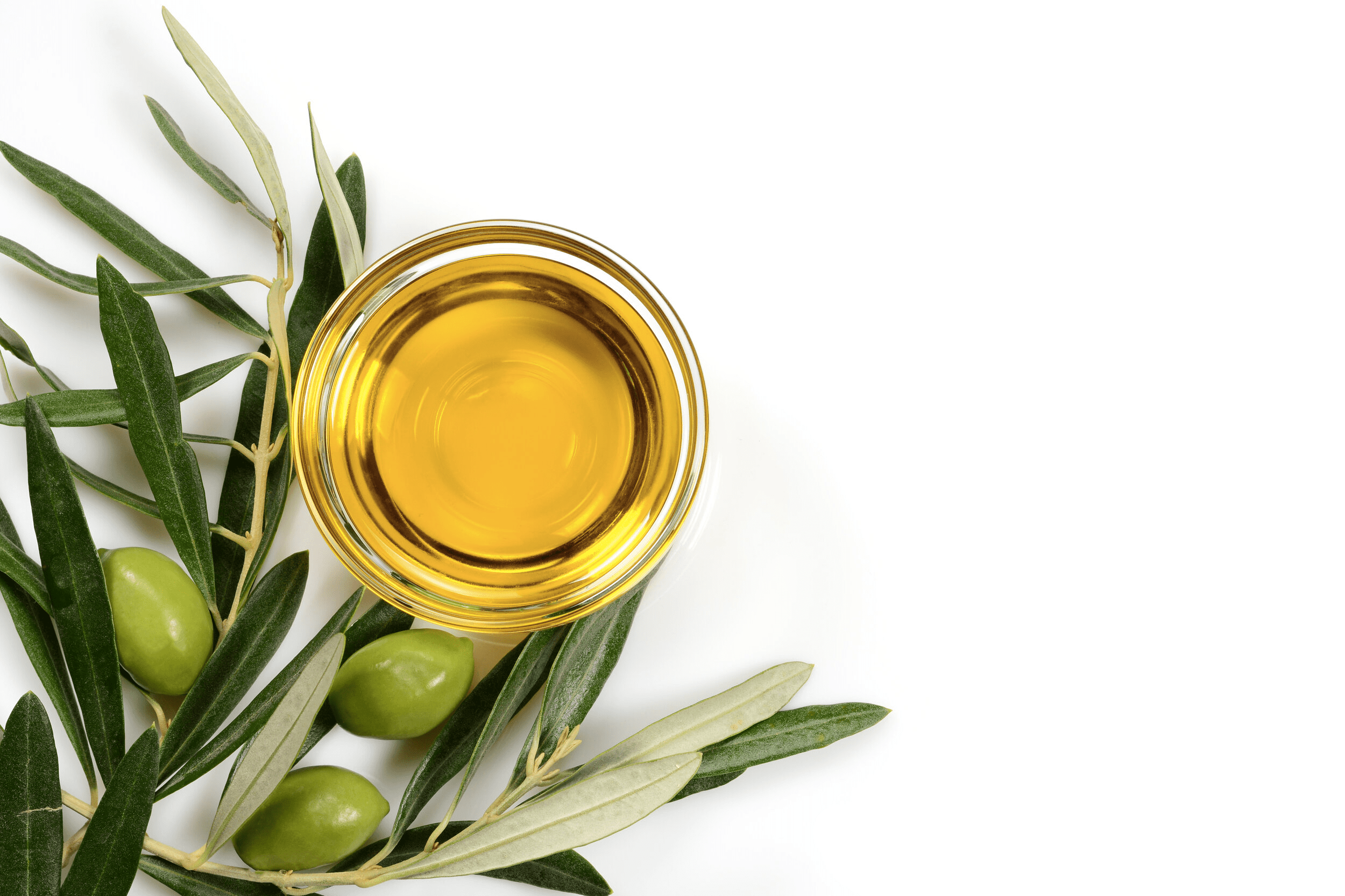NSAID ALTERNATIVES: WHY THEY’RE BETTER FOR YOUR HEALTH AND HOW TO GET STARTED
Looking for an alternative to the traditional nonsteroidal anti-inflammatory drugs…..
NSAID Alternatives: Why They’re Better for Your Health and How to Get Started
If you suffer from inflammation and chronic pain, you may be looking for an alternative to the traditional nonsteroidal anti-inflammatory drugs (NSAIDs). Taking NSAIDs can have long-term side effects that can significantly impact your overall health. Fortunately, there are now many natural alternatives available that don’t come with the same risks associated with NSAIDs. We’ll discuss why NSAID alternatives are better for your health and how you can get started exploring these options.
NSAIDs and why they may be harmful to your health
NSAIDs are chemicals generally prescribed to reduce short-term inflammation and pain. Although they may be effective in the short term, we now understand that they can have a range of negative long-term effects throughout your body when taken regularly. In particular, NSAIDs can lead to increased water retention and bloat, and in some cases can cause systemic inflammation which could increase your risk of chronic diseases. All in all, if you’re considering taking NSAIDs on a regular basis, it’s important to discuss this decision with your doctor and make sure you understand all of the potential risks.
NSAID Side Effects
Nonsteroidal anti-inflammatory drugs (NSAIDs) are a type of pain reliever that is commonly prescribed for conditions such as arthritis and headaches. While effective in relieving pain, long term use of this medication can cause serious side effects such as gastrointestinal distress, kidney damage, and increased risk of stroke or heart attack. Examples of common NSAIDs include ibuprofen (Advil), naproxen (Aleve), and aspirin.
In some cases, the side effects can be so severe that they outweigh any benefit from taking the medication. This is why it’s always important to discuss the possible risks and benefits with your healthcare provider before starting an NSAID regimen. Additionally, natural alternative treatments such as acupuncture, massage therapy, or dietary changes may be better suited to help manage chronic pain without the risks associated with taking large amounts of medication over time.
NSAIDs and Heart Risks
The use of nonsteroidal anti-inflammatory drugs has been known to increase the risk of heart attack or stroke in people who take them regularly. This risk is especially pronounced in patients who have a history of cardiovascular problems; however, even those without any pre-existing heart conditions can still experience an increased risk when using NSAIDs on a regular basis for an extended period of time.
It’s important to note that not all NSAIDs pose the same levels of risk; ibuprofen (Advil) has been found to present a higher risk than naproxen (Aleve). Therefore, it’s important to talk to your doctor about which form of NSAID would be most suitable based on your health history and particular needs. Ultimately, if you find yourself needing relief from chronic pain on a regular basis, it may be beneficial to explore natural alternatives like massage therapy or acupuncture instead since these do not come with the same level of risk as frequent use of medications such as ibuprofen or naproxen.

Why Choose Natural Alternatives?
While traditional medications may provide fast-acting relief from symptoms, it is important to be aware of the potential long-term side effects associated with their use. Many prescription drugs come with the risk of dependency, as well as potential interactions with other medications or supplements.
Over time, a buildup of these chemicals in the body can lead to a range of unpleasant and potentially dangerous side effects, such as liver damage or high blood pressure. In addition, many over-the-counter medicines contain artificial ingredients or synthetic compounds which may also produce undesirable reactions when used on a regular basis. Many people are investigating alternatives to nsaids that can relieve pain and inflammation including herbal remedies and natural dietary supplements.
Finding relief from pain can often seem like an elusive quest, but natural and holistic alternatives may provide the answers that you’re looking for. Unlike over-the-counter NSAIDs, supplements with key natural ingredients such as tumeric, devil’s claw root, cinnamon, pine bark, various vegetable extracts and astaxanthin are quickly becoming popular supplements for those seeking relief from sore muscles and joint pain. These supplements not only contain powerful pain relieving herbs and spices, but they also have the added benefit of no side effects like nausea or upset stomach that can come with NSAIDs. Through easing inflammation, improving circulation and digestion, these supplements can make a big difference to your comfort level by aiding with healing time as well – nature’s answer to providing exceptional pain relief!
Additionally, natural alternatives to traditional medications may offer a better, safer approach to relieving symptoms of illness and injury. With fewer harsh chemicals and no risk of addiction or overdose, natural supplements can provide effective relief without the associated dangers of prescription medications. Herbal remedies such as chamomile tea may also be beneficial for reducing stress and anxiety. Furthermore, certain dietary changes may help reduce inflammation, increase energy levels and strengthen the immune system, helping to mitigate any long-term damage caused by traditional medication use. Exploring these options is an essential step towards a healthier lifestyle and avoiding unpleasant or harmful side effects from conventional medicines.
The long-term benefits of switching to an NSAID alternative
Switching to an NSAID alternative now could mean healthy benefits in the long-term. In addition to relieving inflammation, this type of healthy lifestyle change encourages holistic well-being. Research into the use of herbal treatments has suggested that taking them regularly could prevent a range of chronic illnesses by naturally enhancing and boosting your body’s defenses. As such, integrative care should be seen as a form of preventative medicine going forward, and making positive lifestyle changes such as switching to an NSAID alternative sooner rather than later can help you achieve better health overall in the future.
Natural and supplemental alternatives to NSAIDs are a great option for finding relief from pain without the potentially dangerous side effects. Finding the right combination of supplements and therapies will depend on your unique needs. Whether it be turmeric, magnesium, ginger, omega-3 fatty acids, or any other supplement you may want to try, there are plenty of choices to explore. Investing time into researching what works best for you is the key to success with this method of pain relief. Your long-term health benefits can be tremendous when incorporating natural remedies into your lifestyle. Where can you start? Below we have provided more information about the most beneficial natural anti-inflammatory remedies that are scientifically proven!

Natural Anti-Inflammatories for Chronic Pain: A Safe Alternative to NSAIDS – Body Harmony Physical Therapy
Many natural alternatives to traditional NSAID medications have been studied and found to be effective in managing the symptoms of chronic pain. Turmeric has anti-inflammatory properties that can help reduce swelling and stiffness, while fish oil is a great source of Omega-3 fatty acids that can also help reduce inflammation.
It’s important to speak to your healthcare provider before beginning any new regimen of treatment or taking any herbal or supplement. Depending on your particular circumstances, they may recommend massage therapy as a form of relief. Massage therapy can involve various different techniques such as trigger point therapy and myofascial release that can help reduce inflammation levels. Acupuncture is another popular treatment for reducing chronic pain which works by stimulating specific pressure points on the body and releasing endorphins which act as natural pain relievers.
Examples of natural anti-inflammatory
Finding relief from pain can often seem like an elusive quest, but natural and holistic alternatives may provide the answers that you’re looking for. Unlike over-the-counter NSAIDs (non-steroidal anti-inflammatory drugs), supplements with key natural ingredients such as tumeric, devil’s claw root, and boswellia are quickly becoming popular supplements for those seeking relief from sore muscles and joint pain. These supplements not only contain powerful pain relieving herbs and spices, but they also have the added benefit of no side effects like nausea or upset stomach that can come with NSAIDs. The main biochemically active component of turmeric, curcumin , is another very well-known safe, natural anti- inflammatory agent that has been used to relieve pain by regulating the activity of enzymes and cytokines that inhibit the inflammatory pathways. Through easing inflammation, improving circulation and digestion, these supplements can make a big difference to your comfort level by aiding with healing time as well. To get started on finding natural relief consider exploring supplements with some of the leading ingredients such as tumeric, devil’s claw root extract, or boswellia gum – nature’s answer to providing exceptional pain relief!

Safe supplement options including turmeric, ginger, cinnamon and omega-3 fatty acids, Fulvic acid.
Staying healthy and maintaining your daily routine doesn’t have to be difficult or require daily trips to the pharmacy; supplementing your daily regimen with safe, natural options like turmeric, cinnamon, pine bark and omega-3 fatty acids can help you stay in peak physical form. For example, for arthritis and related conditions, studies show that omega-3 fatty acids—found in fish, fish oil supplements, olive oil, nuts and seeds—may help reduce pain and inflammation. With the discovery that vascular inflammation is the underlying cause of coronary artery disease, fish and fish oil supplements are now recommended by the American Heart Association for the prevention of this disease. These plant-based supplements are easily accessible and have been known to improve health in the long term. Whether you work out regularly or just want an extra boost to your daily regimen, taking daily supplements of these essential ingredients will give you a necessary advantage towards feeling your healthiest!
How Can You Start Exploring Natural Alternatives?

INCORPORATING CAN BE EASY
Incorporating specific dietary changes into your daily routine can help reduce inflammation levels and bring relief from various ailments. Adding spices like cinnamon, garlic and turmeric to your meals can help reduce inflammation, while consuming foods high in omega-3 fatty acids such as salmon, walnuts and sardines is also beneficial for reducing inflammation. Broccoli extract, acai extract and pineapple are also recommended for their anti-inflammatory properties. Additionally, certain minerals such as zinc or fulvic acid may act as powerful antioxidants that can help to protect the body from inflammation by eliminating harmful toxins from the cells. Finally, vitamins A & C are essential elements that can help boost the immune system and reduce inflammation levels. Eating a balanced diet with these key ingredients will help promote a healthy balance of hormones while providing relief from conditions caused by chronic inflammation.
Along with adding key ingredients to your diet, it is also important to reduce or eliminate foods that can promote inflammation in the body. Avoiding processed foods and refined sugars will help to reduce inflammation levels over time. Eating an abundance of fruits, vegetables, and healthy fats such as olive oil provide the body with the nutrients needed for reducing inflammation without the risk of further aggravating it. Reducing caffeine consumption, such as coffee and energy drinks, is also recommended as these beverages have been found to increase cortisol levels which can lead to elevated inflammation levels in the body. Finding a balance between incorporating anti-inflammatory foods while eliminating inflammatory ones will help keep inflammation levels at bay and prevent further damage from chronic illnesses.
Easy ways to incorporate these supplements into your daily routine
Incorporating supplements into your daily routine doesn’t have to be a chore. The easiest way to get the vitamins and minerals you need is by eating a diet that is rich in nutritious foods. Fruits, vegetables, lean meats, grains, and dairy products can all provide essential vitamins and minerals for a balanced diet. If you decide to incorporate dietary supplements, you should make sure that they supplement the diet that you’re already eating rather than replace it. You may find it helpful to take them at the same time every day so that it becomes part of your usual routine. Remember that most people don’t need dietary supplements if their diet is well-balanced and varied – so keep diet as the foundation of any healthy lifestyle!

Strategies for finding the right combination of supplements for your specific needs
Adding supplements to your health plan can be intimidating; there are so many options and you want to make sure that you find the right combination specifically tailored for your body’s needs. The best way to start is with natural supplements that have been proven to work, like omega-3 supplements for reducing chronic inflammation or an iron supplement for low energy levels. Whenever possible, try to pick supplements that contain vitamins, minerals, and herbs all in one dose—this will help you get the most out of each dosage. Finally, consult with a registered dietitian or doctor who can go over your current supplements and create a customized plan tailored just for you. Doing research ahead of time and working with healthcare professionals will help ensure that you are making smart decisions and getting the best results out of your supplement combos.
The long-term benefits of switching to an NSAID alternative
Switching to an NSAID alternative now could mean healthy benefits in the long-term. In addition to relieving inflammation, this type of healthy lifestyle change encourages holistic well-being. Research into the use of herbal treatments has suggested that taking them regularly could prevent a range of chronic illnesses by naturally enhancing and boosting your body’s defences. As such, integrative care should be seen as a form of preventative medicine going forward, and making positive lifestyle changes such as switching to an NSAID alternative sooner rather than later can help you achieve better health overall in the future.
Natural and supplemental alternatives to NSAIDs are a great option for finding relief from pain without the potentially dangerous side effects. Finding the right combination of supplements and therapies will depend on your unique needs. Whether it be turmeric, magnesium, ginger, omega-3 fatty acids, or any other supplement you may want to try, there are plenty of choices to explore. Investing time into researching what works best for you is the key to success with this method of pain relief. Your long-term health benefits can be tremendous when incorporating natural remedies into your lifestyle. There’s never been a better time than now to take matters into your own hands when it comes to managing your pain—so let’s get out there and start exploring all of these amazing alternatives! Where can you start? Invest time in researching the best supplements for you and reap the rewards of natural health by having greater self-awareness about what works for your body.

Wrap it up!
There are many alternatives to taking NSAIDs for reducing inflammation levels in the body. Eating a balanced diet rich in essential nutrients, practicing mindful movement and supplementation, engaging in massage therapy and acupuncture treatments, as well as focusing on stress relief can all be beneficial for naturally managing inflammation and other chronic health issues. It is important to work closely with a healthcare professional when exploring these treatment options, as they will be able to provide you with personalized advice and support based on your individual needs. With the right combination of lifestyle modifications, dietary changes and natural remedies, you can lower inflammation levels safely and effectively without relying heavily on medications.
Here is a list of natural supplements and how they may help to relieve inflammation:
-
Astaxanthin – This antioxidant naturally derived from microalgae helps to reduce the inflammatory response in the body.
-
Broccoli Extract – Rich in sulforaphane, broccoli extract is believed to provide significant anti-inflammatory properties.
-
Olive Extract – Containing polyphenols, olive extract has been shown to reduce oxidative stress and decrease inflammation.
-
Mulberry Extract – Contains compound “dNJ” which helps inhibit the release of certain proinflammatory substances.
-
Bromelain Extract – Found in pineapple, bromelain is a protein-digesting enzyme thought to have anti-inflammatory effects.
-
Acai Extract – This Brazilian fruit contains powerful antioxidants that can fight off damaging free radicals and reduce inflammation.
FAQs About NSAID Alternatives
Q: What are the benefits to using NSAID alternatives for chronic pain relief? A: NSAID alternatives provide natural pain relief without the negative side effects associated with traditional nonsteroidal anti-inflammatory drugs. By relying on natural supplements and ingredients, NSAIDs can help relieve pain and inflammation without risking multiple risk factors or further harming your health.
Q: Are there any risks associated with taking natural supplements to alleviate chronic pain? A: Though natural supplements may offer safer options than those provided by pharmaceuticals, it is important to consult with a doctor before beginning any new regimen or treatment option. Supplements can interact negatively with certain conditions or medications and should be taken under medical supervision.
Q: Are there any long-term benefits of opting for NSAID alternatives instead of traditional nsaids? A: Yes! There are numerous benefits to relying on more natural methods of dealing with chronic pain. Not only are they less likely to have side effects, but they come with additional benefits such as helping to reduce stress levels and improve overall wellbeing. Long term use of alternative treatments is much safer than prolonged use of nsaids, many of which can be very harmful in the long run.
